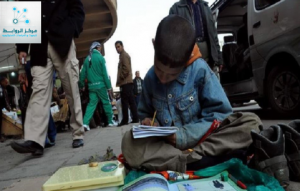Shatha Khalil *
The political crises experienced by Iraq reflected negatively on the economic and living conditions in the country, which caused the halt of the productive wheel of the country and the high rates of unemployment, poverty, disease and illiteracy in the country rich in oil and human resources.
A few days ago, Human Rights Watches announced a statistic of Iraq’s status for the last 14 years, which it described as going through the worst and most dangerous stages of its existence on the planet.
The statistics indicated that “the basic education is in the worst cases for (14658) schools, nine thousand of them affected and eight hundred mud, and the need for eleven thousand new schools, and that the Iraqi debt amounted to (124) billion dollars to the twenty-nine countries.
It stressed that oil sales during the years (2003-2016) amounted to a trillion dollars, “one billion dollars,” did not contribute to solve any problem of the Iraqis.
The statistics showed that Iraq suffers from the spread of (39) disease and epidemic, most notably (cholera, polio, viral liver and high rate of cancer and congenital malformations).
It stressed that (13328) factories, plants and productive establishments, have been stopped working completely; in addition, the area of cultivated land has decreased from 48 million dunums to 12 million dunums.
According to the text of the statistical: that there are three million four hundred thousand displaced, distributed to sixty-four countries, and four million and one hundred thousand displaced inside Iraq, in addition to one million seven hundred thousand living in different camps.
the statics added : that there are five million ans six thousand orphans ( aged between one month- 17 ) , as well as 2 million widows( aged 15 -52 ) ,in addition, six million Iraqis are unable to read and write notably in Basra, Baghdad, Najaf, Wasit and Anbar governorates).
The statics went on saying , unemployment rate was 31% in Anbar, Muthana, Diyala and Babil provinces in the forefront , followed by Baghdad, Karbala and Nineveh and (35% ) of Iraqis are below the poverty line (less than five dollars a day).
The statistics indicated that the rate of cannabis and narcotic abuse reached 6% in Baghdad, which was in the forefront followed by Basra, Najaf, Diyala, Babel and Wasit. In addition, the percentage of child labor reached 9% for those below the age of 15 years. , and the percentage of food imports (75%) and other materials (91%).

Political corruption, or a war against terrorism, or belonging to other than Iraq, who are at the helm of the government, there are many reasons and the result is one, suffering lived by a simple Iraqi citizen who belongs to a country that has enough oil wealth to make it one of the richest countries in the world and makes its citizens the most luxurious ones among peoples.
Economic Studies Unit
Rawabet Center for Research and Strategic Studies



